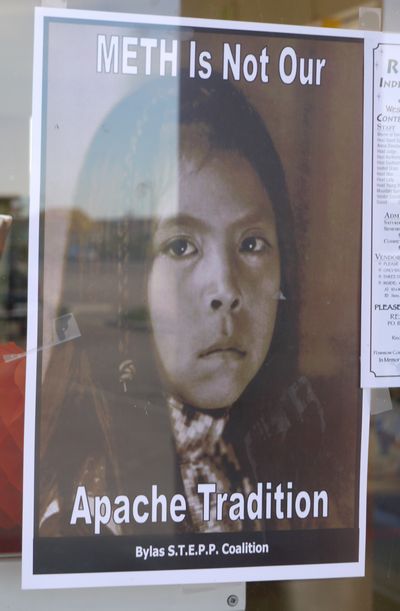
Bylas, said the road sign, was the home of the Apache. I’d sat on a bench opposite the grocery store, which, together with the Laundromat next door, was the only sign of economic prosperity. Small, smart shop units close by empty. Federal funding. Difficult to tell if they’d ever been used. I doubted it.
In the store window various posters. Food distribution. Auctions of now defunct vehicles, open only to Apache. Warnings about abuse. Here crystal meth. In Canada, amongst the First Nations, it’d been Foetal Alcohol Syndrome. Locals drifting in and out, pulling up, for the most part, in their large SUVs.
Earlier I’d stopped at Peridot’s Apache Burger diner for a mid-morning coffee. Known the town was in a native American Reservation, my expectations drearily low. Half expected the place to be closed. But, instead, quietly pleased to find what appeared to be a well run business. Attention to detail.
Gazing into my coffee, I’d mulled over the whole Reservations concept, be it in the US, Canada or even Australia. Often lambasted for being economically unviable land. But I thought that rather missed the point. It was much more about isolation rather than integration, intentional or otherwise. And integration need not lead to assimilation, a loss of cultural identity. As plenty of immigrants had admirably demonstrated.



